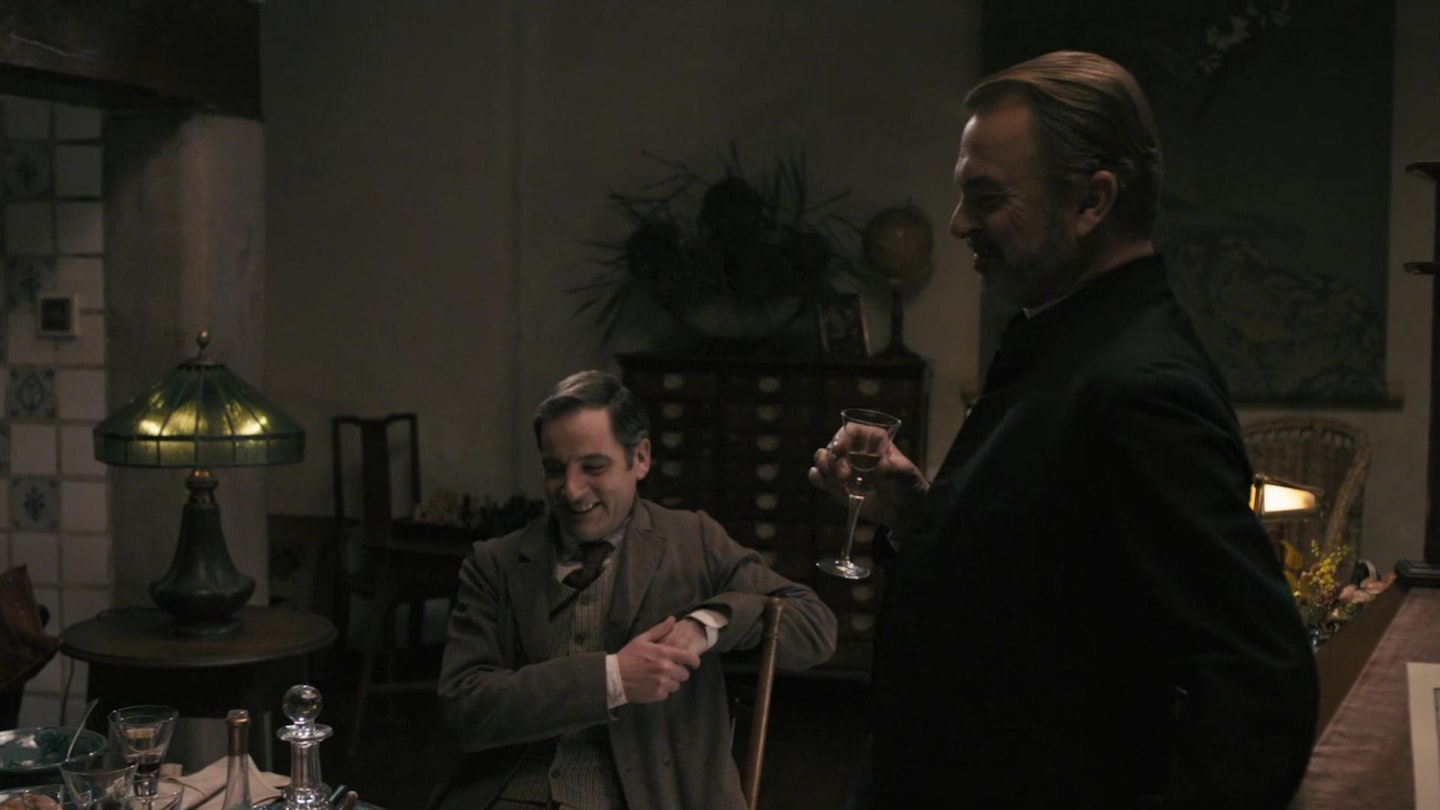While set in respectable Edwardian Britain, this engaging period lark is far from straight-laced. A playful sense of whimsy is ever-present in the adaptation of Lord Dunsany’s 1936 book, which gently mocked the faddish interest in reincarnation while using it to explore deeper themes.
The casting is top-notch: Jeremy Northam plays privileged London gent Fisk, who spends Thursdays vainly trying to divert his curmudgeonly father Fisk Sr. (a delightful Peter O’Toole). But Fisk Jr. finds his own diversion after dining with the titular dean (Sam Neill). Turns out that after a mere sip of his favourite tipple, Tokay, Spanley briefly revisits what may have been his previous life. And without wishing to give too much away, this old dog was no Napoleon. Clearly further dinners — and more bottles — are required to unlock the dean’s story, and so Fisk goes on the hunt for more luxurious liquor, enlisting the help of man-about-town Wrather (Bryan Brown), an opportunistic spiv also intrigued by the idea of the “transmigration of souls”.
Underpinning this comical scenario is the moving story of Fisk’s dead brother, who remains unmourned by their stubborn father. Whether snapping at the staff or rousing from a mid-lecture slumber with a loud, irritable, “Where am I?”, O’Toole is the star of the show, drawing both comedy and pathos from every opportunity. His rambling reminiscences are a routine part of Fisk Jr.’s weekly visits — until the latter begins to link them to his current obsession. There’s a strong sense of fate involved by this stage, but the script never takes itself too seriously, showing a keen awareness of its own ridiculousness.
Ironically, suspension of disbelief is easiest when it comes to the plot’s more outrageous points: Fisk’s initial fixation with Spanley — central to the progression of the narrative — isn’t entirely credible. It’s hard to buy into the idea that this outwardly unremarkable dean would arouse such fascination, even if you accept the notion of fate. And there’s no doubting the concept of Dean Spanley won’t endear all-comers. But the world of this convivial drama is instantly inviting and utterly original, whether or not you believe a moment of it.

